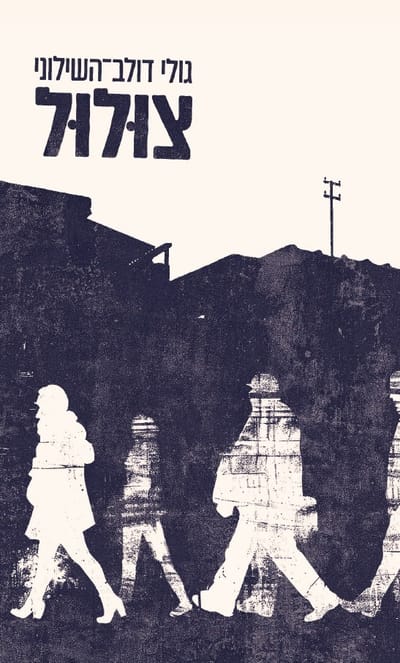BOOKS 2025
Why do crabs walk sideways? How do penguins not freeze? What are jellyfish made of? These and many other questions are the subject of this fascinating book, which includes interesting works on the great sea.
Read MoreA building slated for demolition in the Neve Sha'anan neighborhood of Tel Aviv, where an association operates for asylum seekers, is being drained by a host of figures from various corners of Israeli society: criminals, new immigrants, artists, women in prostitution, activists, real estate agents, and most of all - Eritrean asylum seekers.
Read MoreIn May 1945, Peter Wolfgang Loeb, later Gideon Lev, left the Theresienstadt concentration camp. All of his family members, except his mother, were murdered by the Nazis. Eighty years after that war, Gideon Lev tells his story with candor, and from a sober and fresh perspective, he tells the story of his life, and in the process provides some tips that are important to remember from time to time for a more correct and fulfilling life.
Read MoreThe book presents the general public with a clear and accessible analysis of a fundamental issue that is of no less importance to the State of Israel: the combination of Judaism and democracy. From a legal perspective and based on decades of experience in public service and the Supreme Court.
Read MoreA groundbreaking study of the relationship between the Book of Isaiah and the poetry of the hearer. By applying literary methods concerning intertextual connections to the poetry of the hearer and the prophecy of Isaiah, the book reveals the complex connections between prophetic literature and poetry in the Torah.
Read MoreFrom "Snooker Party" to "The Oshpizin": A new non-fiction book reveals what religious people look like in Israeli cinema. The book offers a fascinating and original look at the history of Israeli society through the lens of cinema. The book reveals how the representation of religious people on the big screen has changed – from ridiculous or threatening characters existing on the margins, to center stage in Israeli cinema.
Read MoreThe book's starting point is what is known as the "global bee problem": why have bees been given such a lofty and fateful role, carrying the future of humanity and the Earth on their shoulders? 'A Hive Trip' is a window into deep and wide-ranging ecological issues. What do bees tell us about their current state?
Read MoreIsraeli Drama on Television 1968-1998. In 1971, the first Hebrew-Israeli drama series, "Hadva and Shlomik" (Shmuel Imberman, 1971, based on a novel by Aharon Meged), was broadcast on the only television channel in Israel, in black and white. The Israeli audience loved the series very much, and the ratings, which were not yet measured at the time, were reflected in the streets that were emptied of people during its broadcast. The book deals with this series and three series created after it: "Mr. Money", "Michelle Ezra Safra and Sons", and "Bat Yam - New York"
Read MoreThe subtitle of the book is: 'On Lies and Betrayal.' The book reveals the forces that operated in real time and later in the Kastner trial and in the archives in the State of Israel, to conceal and falsify documents about the real rescue efforts in Hungary (1943-1944) led by Dr. Israel Kastner, head of the Rescue Committee.
Read MoreThe Netherlands. 1961. The craters left in the quiet countryside of eastern Holland after the bombings of World War I have been filled in, buildings have been renovated and restored, and it seems that the war is truly over. Isabel lives alone in her late mother's house, a life of orderly daily routine and strict self-discipline. Everything changes when her brother Louis brings his new and vulgar girlfriend Eva, leaves her there, and travels.
Read More35 in-depth conversations about a sudden separation from home, from people, from communities, from routine and work, from history, from a pulsating life and from memories. Conversations about loss and brokenness, about uncertainty, about small attempts at rebirth, about outstretched hands. Each story is accompanied by a portrait photograph.
Read MoreAn excerpt from the novel appears on the back of the book, as Itamar Levy explains: "One of the most important and neglected parts of the book is the back cover... I have been approached again and again by the publishers who published my books, asking me to write a few words about the book and myself. I have refused every time. In almost all of my books, on the back of the book you can find an excerpt from the novel. This is, in my opinion, the right solution. If you liked what was written, if you were intrigued, you will want to continue into it as well."
Read More










